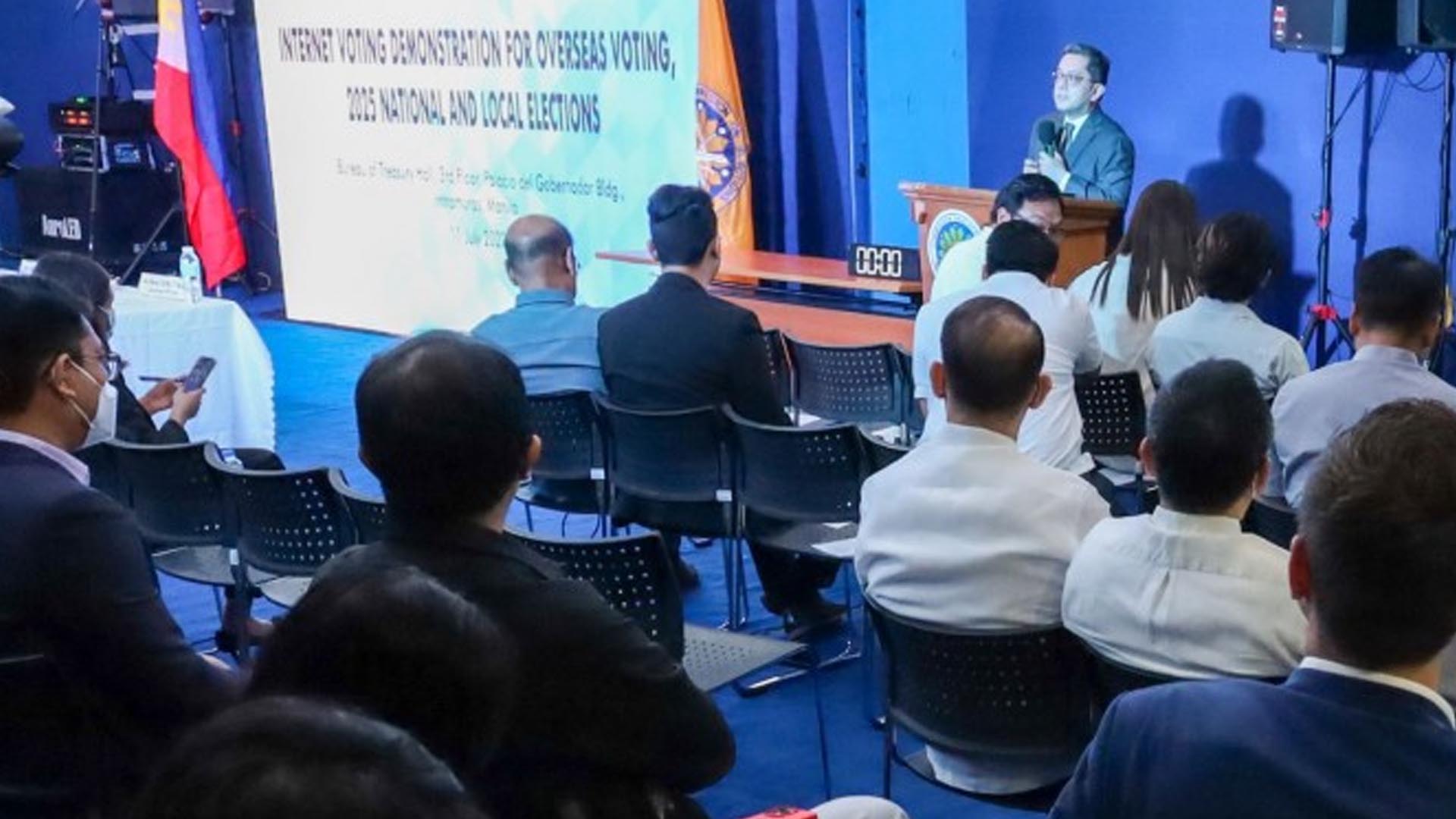The Commission on Elections (Comelec) on Tuesday underscored the need for internet voting to ease the conduct of elections and increase voter turnout for overseas Filipinos.
The Comelec made the remark on the sidelines of the demonstration of internet voting in preparation for the 2025 national and local elections.
In a Facebook livestream, Comelec chairperson George Erwin Garcia said it is high time to take advantage of the technological advancements to explore the country’s options for automated voting.
“We should now venture (into) the other modes of voting. And therefore during the en banc session, the en banc adopted a policy to proceed the internet voting, and we interpreted the provision of the law, authorizing the Commission on Elections to venture (into) other modes of voting such as internet voting,” he said.
Garcia recalled that just for the 2022 polls, the Philippines spent around PHP417 million just to ensure that 600,000 voters would be able to cast their votes.
“Per capita, that would be about PHP400 per voter, (that’s) too expensive considering that we only have a 39-percent voter turnout. That’s the reason why the Comelec is now thinking outside the box,” he added.
In a separate statement, Comelec spokesperson John Rex Laudiangco said the poll body is mandated to “study and explore the use of the internet to cast votes for overseas Filipino voters,” pursuant to Republic Act 9189 or the Overseas Absentee Voting Act of 2003.
Meanwhile, the demonstration included the presentation of eight multinational internet voting solutions providers.
Among the participating solutions providers are Miru, Smartmatic, Dermalog, Indra, E-Corp, Tambuli Labs, Voatz and Thales.
Laudiangco said the output derived from the demonstration shall be crafted as the country’s term of reference (TOR).
“Such TOR will then be the subject and basis of a competitive public bidding in time for the 2025 national and local elections,” he said.
The crafting of TOR is also expected to fit in the country’s situation in terms of its requirement for “cybersecurity, accuracy, cost-effectiveness, efficiency, integrity, convenience, sustainability, transparency, inclusivity, and auditability.”
Other agencies also supported the demonstration to assess the technology systems used by the internet voting solutions providers.
Participating offices include the Comelec Advisory Council, the Department of Information and Communications Technology, the Department of Science and Technology, and some representatives from the IT community in the country. (PNA)




















